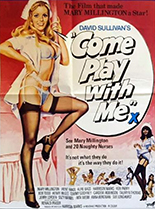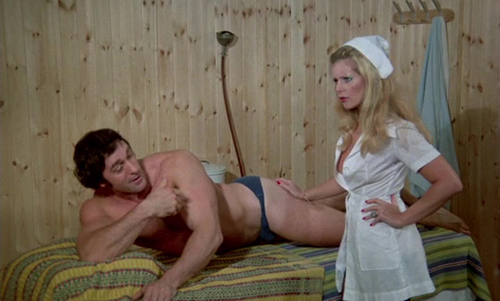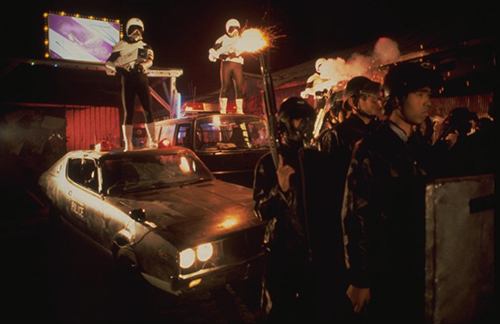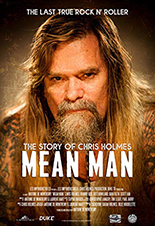
 Though their teeth stereotypically may not be in all that great of condition, the sturdy women of the British sex comedy Come Play With Me are people who deserve our respect and admiration, mostly due to the fact they very rarely, if ever, wear clothes. I really admire that, guv’nor!
Though their teeth stereotypically may not be in all that great of condition, the sturdy women of the British sex comedy Come Play With Me are people who deserve our respect and admiration, mostly due to the fact they very rarely, if ever, wear clothes. I really admire that, guv’nor!
Although these ladies don’t show up until about 30 minutes in — a charming Mary Millington among them — as soon as they appear on-screen (and their clothes, of course, disappear!), it quickly becomes the sex comedy we’ve paid good money for, as they dance and sing in the nude while two old perverts dressed like Laurel and Hardy try to hide their blood-infused members.
At legendary 10 Downing Street, the prime minister (played by Benny Hill cast member Henry McGee!) and his cohorts argue about some stolen money. Across town, in a burlesque house, some guy argues about women while one dancing spreads fluffernutter on her nether regions. And then, down at a café, two guys argue about the price of coffee and pies.
None of that really matters, because when a rock ’n’ roll band stops at a local hotel, the horny women turn the place into a health club that seems to run, primarily, on juice and nudity; honestly, though, it’s a business I can get behind — and in front of — and would like a pamphlet, and not just for the fact Millington gives a horny gentleman a wholly painful yet fully erotic colonic.
Double-breasted with cameos from performers from the best British sex comedies of the era — movies and television shows, mind you — Come Play With Me is, honestly, mostly dumb, but filled with so many titillating moments of Her Majesty’s softcore sexuality that it’s easy to see why it played in London theaters to forlorn perverts for four royally arousing years. —Louis Fowler












